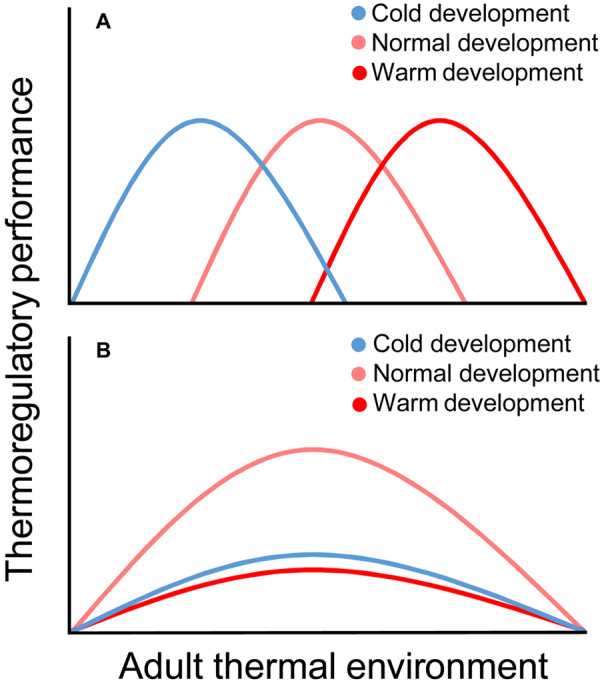FIGURE 1.

Possible effects of the thermal environment during development on thermoregulatory performance in adulthood. Under the environmental matching hypothesis (A), adult performance is better when the thermal environment matches that in which the individual developed. Under the silver spoon hypothesis (B), both colder-than-normal and warmer-than-normal developmental temperatures act suppressively on the pre- and/or postnatal phenotype, such that individuals that developed in unconstraining thermal regimes (here, “normal”) consistently perform better than cold- and warm-reared individuals as adults.
